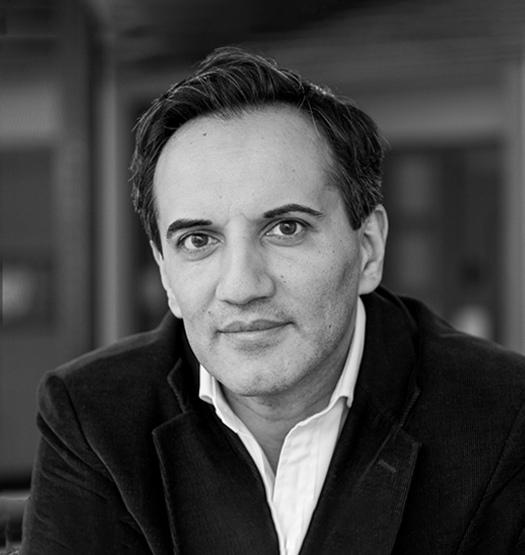In this exclusive interview with Iggy Bassi, visionary Founder and CEO of climate intelligence company, Cervest, we learn the value of all markets adapting to the looming complications of the climate crisis. A passionate advocate for using tech to tackle humanity’s greatest problems, he’s a serial entrepreneur with extensive experience in agriculture, sustainability, and risk management among others.
The climate crisis rightly has many industry leaders pondering the next steps in response to events beyond their control. Dramatic weather events and shifting ecological realities will impact businesses in myriad ways and being able to adapt is going to become as necessary as balancing the books.
To learn more about how businesses can pivot successfully and look to a future of informed climate-based decision making, we spoke to Iggy Bassi, an entrepreneur with an eye for revolutionary ideas. He’s also the Founder and CEO of Cervest, a climate intelligence company that uses Earth Science AI to inform asset-scale decisions.
Meet Iggy Bassi
Founder & CEO, Cervest
Iggy Bassi is the Founder and CEO of Cervest, a Climate Intelligence company using Earth Science AI for smarter asset-scale decisions. A serial entrepreneur with a passion for world-changing innovations that tackle global challenges, he has extensive experience in emerged and emerging markets.
Regularly invited to speak on climate issues, AI, security and inclusive markets, Iggy has spoken at Harvard University, World Bank, Cog-X, UN-FAO, TechNation, House of Commons, Future Investment Initiative, ICRD and many others.

CEO.digital: You’re the Founder and CEO of Cervest and what many have described as a serial entrepreneur. Can you tell our readers a little about Cervest and your reason for founding the company?
Iggy Bassi: “Cervest is a Climate Intelligence company. We have built a platform fusing together the world’s best and most comprehensive climate science, with machine learning and AI to create decision-useful information on climate risk for businesses, governments, financial service providers and individuals at a granular level. The inspiration for founding Cervest came about from my previous venture – an agritech business in Ghana. During my time on the farms, we suffered several destructive weather events resulting in heavy crop losses.
“I thought to myself at the time, that there had to be a better way of predicting and managing these extreme events, the science was out there, it just wasn’t accessible. I soon realised that creating open access, understandable and objective Climate Intelligence was important not just to agriculture, but to everyone, everywhere. So Cervest was born. The name itself is a nod to this – a combination of ‘Ceres’, the Roman goddess of agriculture, and ‘harvest’.”
What made you realise that technology could help tackle the climate crisis?
“As soon as I started digging into the existing climate data and models, it was clear that so much of it was siloed within different research groups and establishments and that it wasn’t in a decision-useful state for enterprise risk management purposes or building competitive edge.
“From the beginning, we worked alongside experts such as Dr. Ben Calderhead and Prof. Mark Girolami at the Alan Turing Institute to use machine learning and statistical programming to analyse and standardise the data into one platform, ensuring consistent outputs both down to asset level-scale and covering assets across the globe.”
What do you think will be the next big change businesses will make in the face of the climate crisis?
“Businesses will fundamentally need to become climate intelligent. Right now, there isn’t even a specific role to coordinate climate risk management within organisations, even with mandatory climate-related financial disclosure looming – there is no such thing as a Chief Climate Change Officer (that will not be the case in a couple years’ time!). Yet climate will need to be integrated into every decision that organisations make from now, whether that be reporting on and disclosing your climate risk, protecting your buildings and infrastructure from accelerating climate events, deciding how, where and when to invest capital, how to adapt the assets you have and build in climate resilience to your future.
“This requires both the insights to make these decisions and the tools and skills to implement them. We are bringing the insights – what we call Climate Intelligence – and organisations of all sizes will need to action them.”

Right now, there isn’t even a specific role to coordinate climate risk management within organisations, even with mandatory climate-related financial disclosure looming – there is no such thing as a Chief Climate Change Officer. That won’t be the case in a couple years’ time!
Iggy Bassi Founder & CEO, Cervest
How can an individual promote greater sustainability within their organisation?
“I, perhaps surprisingly, don’t like the word sustainability! It is used and abused and doesn’t really represent the dynamic, evolving goals that businesses and organisations need to be aiming for. I prefer to think about this as becoming climate-aligned; how can our actions promote climate alignment or at the very least be climate aligned. While it’s up to the firm to have good environmental policies, we should really be striving to make our decisions governed by climate alignment. In fact, in the next five years, I expect to see climate at the core of every decision in enterprises, governments, and capital markets.”
You’ve advised Fortune 500 companies, sovereigns, and entrepreneurs on all manner of things. What has been a standout moment for you on who you worked with?
“In 2007, we advised the Gates Foundation on developing low-cost business models for interventions for ‘the base of the pyramid’, (e.g. those with low income). This was at the embryonic stages of companies thinking about how to move beyond profit and into shared value, and transferring lessons learned into the base of the pyramid. For me, I imagined how these actions could be powerfully scaled and this led me to build and scale an agri-business, working on increasing sustainable productivity for farmers. Experiencing the physical challenges and risks to agricultural productivity stemming from extreme weather, ultimately laid the foundations to build Cervest’s vision of creating Climate Intelligence to underpin all enterprise, financial, and policy decisions.”
Do you think there is more to be done through open-access platforms to address climate change?
“The issue of and threats posed by climate change are universal. They don’t see boundaries or bank accounts. In general, Climate Intelligence should only be available through open access platforms. Everyone needs access to the information and knowledge we’ve assembled for becoming resilient to the risks of climate change. What we absolutely cannot have is ‘walled gardens’ of climate intelligence insights, accessible only to those who can afford it. This intelligence must be available to us all. When it comes to adapting and mitigating climate change, we either all win or we will all lose.”
Learn More About Cervest

You can learn more about Cervest and its services by visiting the company’s website.






